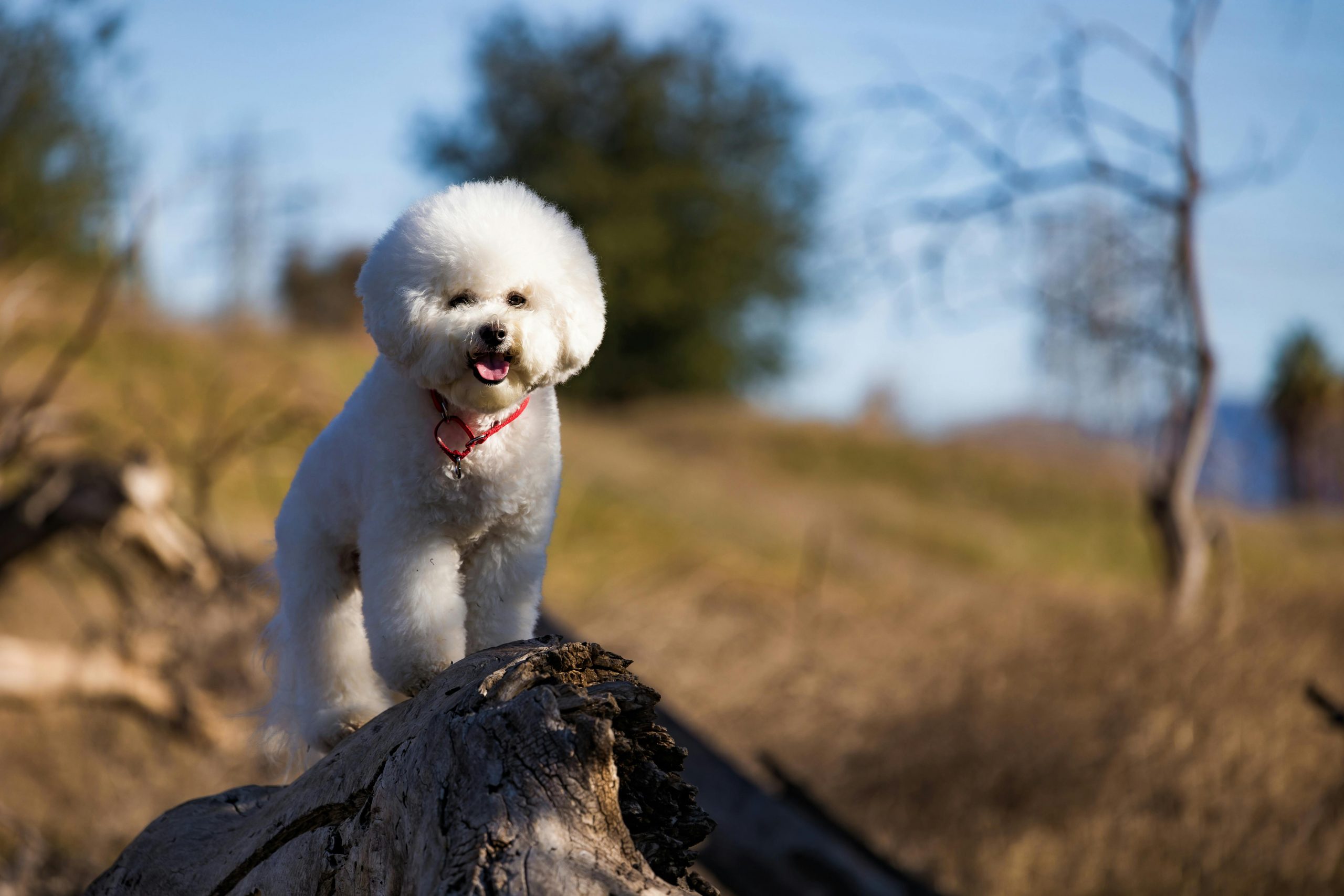Bichon Frises, with their fluffy white coats and cheerful dispositions, are beloved for their friendly and affectionate nature. Originating from the Mediterranean region, these small dogs were popular among European nobility in the Middle Ages and later became a favorite among the general populace for their charm and companionship. Bichon Frises are particularly noted for their playful, yet gentle demeanor and their hypoallergenic fur, which makes them ideal pets for families with allergy concerns. While they are widely recognized for their sociability and adaptability, Bichon Frises also exhibit several unusual habits that are both endearing and distinctive to the breed. These behaviors often reflect their historical roles as companion dogs and their innate need for interaction and activity. This article explores seven of the most unusual habits of Bichon Frises, shedding light on each behavior and providing insights into how owners can manage these traits effectively.

1. Spinning in Circles
Bichon Frises are known for their habit of spinning in circles, particularly when they are excited or happy. This behavior can seem amusing and is often a display of their playful nature. The spinning may also be a way for them to expel excess energy or express their anticipation for something they enjoy, such as mealtime or a walk. While generally harmless, if the spinning becomes excessive, it might indicate anxiety or overexcitement. Providing regular exercise and mental stimulation can help manage their energy levels and reduce frequent spinning.
2. Following Owners Everywhere
Often referred to as “Velcro dogs,” Bichon Frises have a tendency to follow their owners around the house constantly. This behavior stems from their breed’s development as companions who thrive on human interaction and dislike being left alone. While this can be flattering and signify a strong bond, it may lead to separation anxiety if they are not taught to spend time alone comfortably. Gradual training to encourage independence, along with providing engaging toys and a cozy space of their own, can help ease this dependency.
3. Sudden Bursts of Energy
Despite their small size and cuddly appearance, Bichon Frises occasionally exhibit sudden bursts of high energy, often called “Bichon blitz” or “zoomies.” During these episodes, they may run wildly around the house or yard, darting back and forth in a playful manner. This is a normal way for them to release pent-up energy and can be quite entertaining to watch. Ensuring they have adequate daily exercise and playtime can help manage these bursts and keep them balanced.
4. “Talking” to Their Owners
Bichon Frises may not be the most vocal breed, but they do have a unique way of “talking” to their owners through a series of yips, barks, and varied vocalizations. This communicative behavior is their way of engaging with their human family, expressing their needs or desires. Understanding and responding to these cues can deepen the bond between pet and owner. Training to differentiate between appropriate and excessive vocalization is also beneficial, ensuring they communicate without becoming a nuisance.
5. Obsessive Licking
Some Bichon Frises develop a habit of obsessively licking themselves, their owners, or objects around them. This behavior may be driven by stress, boredom, or even skin irritations. Observing when and what they lick can provide clues about why they are engaging in this behavior. Addressing the underlying cause, whether it’s providing more attention, increasing physical activity, or consulting a vet, can help mitigate this habit.
6. Sleeping in Tight Spaces
Bichon Frises often prefer sleeping in small, enclosed spaces. This preference might stem from their instinct to nest and feel secure. They might choose spots under tables, in between cushions, or even in laundry baskets. Providing a safe, cozy bed in a secluded part of your home can satisfy their nesting instinct and ensure they have a comfortable spot to retreat to.
7. Picky Eating Habits
Bichon Frises can be surprisingly picky eaters, showing distinct preferences for certain types of food and sometimes ignoring others. This can be challenging when trying to ensure they receive a balanced diet. Establishing a consistent feeding routine, experimenting with different healthy foods, and avoiding the temptation to offer human food can help manage their picky tendencies.
Learn More About the Bichon Frise Dog Breed: Information, Facts & Pictures
Bichon Frises are delightful companions, known not just for their adorable looks but also for their unique and sometimes quirky behaviors. Understanding these habits is key to providing a nurturing environment that caters to their needs. Through proper care, training, and attention, owners can ensure that their Bichon Frises lead happy, healthy, and fulfilling lives as integral members of the family.
 Toledo, United States.
Toledo, United States.